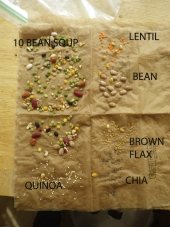












 1
1




 1
1




Freakin' hippies and Squares, since 1986




Landon Sunrich wrote: Potatoes almost always start going green when they're under florescence quickly.




 1
1




Miles Flansburg wrote:
Thanks Landon, I didn't know that.
Freakin' hippies and Squares, since 1986
 1
1









Freakin' hippies and Squares, since 1986












 1
1













|
This is my favorite show. And this is my favorite tiny ad:
Learn Permaculture through a little hard work
https://wheaton-labs.com/bootcamp
|



